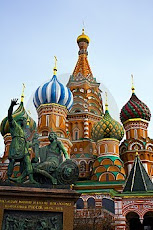
Major world religion which arose out of Judaism. Christians believe that Jesus of Nazareth (first cent. CE) fulfilled the prophetic predictions of the Hebrew Bible as the Christ, a Greek term which translates the Hebrew Mashi'ah (literally, the anointed; figuratively, savior, Messiah). As portrayed in the New Testament, Jesus was the son of Mary, a Jewish virgin whose miraculous conception of Jesus was caused by the Holy Spirit. Jesus attracted a number of Jewish followers (apostles) with his preaching, which called for repentance in anticipation of the long-awaited "Kingdom of Heaven." He criticized the two major Jewish religio-socio-economic parties, the Sadducees and the Pharisees, but seems to have shared many ideas with both groups, especially the Pharisees, and observed the commandments ordained in the Hebrew Scriptures. His "messianic" activity, which was seen as a political threat both to the Roman government in Erets Israel and to the Jewish authorities, led to his crucifixion. Jesus' disappointed disciples were able to reinterpret his messianic calling, giving it spiritual rather than political content, thereby keeping Jesus' movement alive---initially as a Jewish sect---until it developed fully into Christianity.
All the first Christians were Jewish followers of Jesus who believed that he had risen from the dead and would imminently return. Under the influence of Paul of Tarsus (a Jew who was originally an opponent of Christianity), the new religion expanded to include Gentiles who considered themselves free of the obligation to observe the commandments. Scholars are divided as to when the final break between the two religions occurred, but it was probably some time in the second century as Gentile Christianity became the dominant part of the religion. Eventually, the Jewish-Christians became a small minority among Christians, despised by Jews for being Christians and by Christians for being Jews. They survived for a few centuries.
Early Christians were persecuted by the Romans, but, in the fourth century, the Emperor Constantine made Christianity the official Roman religion. From that time on, Jews who lived under Christian governments were subjected to persecution, discrimination, attempts at conversion, expulsions, and massacres. Many Christians believed that the continued existence of the Jews as a separate, legitimate religious entity called into question the truth of Christianity as the successor religion to biblical Israel. They also accused the entire Jewish people with the crime of "deicide," i.e., killing God, (i.e., Jesus) because of the New Testament account of Jewish complicity in the crucifixion. Therefore, while Christians generally recognized the right of Jews to observe their own religion in the hope that they would eventually convert to Christianity, attempts were made to guarantee that a secondary status for Jews was maintained, as if their depressed condition were evidence of Divine displeasure. Christian anti-Semitic theory and practice have been major factors in Jewish history. Anti-Jewish stereotypes, even identifying Jews with the devil, became deeply ingrained in the Christians consciousness.
While there are many forms of both Judaism and Christianity, the differences between classical Judaism and classical Christianity may be summarized as follows:
(1) Judaism conceives of God's unity as absolute, with no internal distinction; Christianity maintains a Divine Trinity of three Persons, the Father, the Son, and the Holy Spirit, all of whom are God, even though the Father generated the Son, and the Father and Son together (according to Western Christianity) caused the procession of the Spirit.
(2) For Judaism, God is incorporeal and can never be visible in human form; while agreeing that God is incorporeal, Christianity sees in Jesus the incarnation (embodiment) of the second Person of the Trinity, the Son.
(3) Although Judaism contains certain concepts of original sin, the preponderance of Jewish opinion holds that individuals can achieve salvation through their own effort; Christianity holds that the sinful nature of humanity, caused by the original sin of Adam, prevents salvation without the intermediacy of the sacrifice of the Divine-human Messiah.
(4) The Jewish concept of the Messiah is generally a political one: when he comes in the future, he will be a human descendant of David who restores the monarchy, rebuilds the Temple, and gathers in the Jewish exiles from the Diaspora; for Christians, while Jesus the Messiah was fully human, the son of Mary and descendant of David, he was also fully God, and his task was humanity's redemption from the original sin of Adam.
(5) Judaism maintains that the covenant between God and the People of Israel embodied in the Hebrew Scriptures is eternally valid and not to be superseded; observance of the commandments, as understood through talmudic legislation, is necessary for the personal salvation of the Jews. Christianity believes in a second covenant, between God and all humanity, recorded in the New Testament (as contrasted to the Hebrew "Old Testament") and pronounced by the mission of the Divine-human person of Jesus; salvation (available to all humanity) depends on belief in Jesus as the Christ/Messiah, not on observance of the commandments.
(6) Since Christians see themselves as the recipients of the new covenant, they believe that they are the true spiritual descendants of Abraham and deserve the name Israel; Jews maintain that they remain the "true Israel," being both the physical and spiritual heirs of Abraham.
Historically, Jews have been the objects of Christian missionaries, who attempted to demonstrate that the Christian approach to the issues outlined above is the correct one. Converted Jews who knew Jewish literature and tradition often stood in the forefront of the conversion campaigns. Jews, for their part, maintained that Christianity was a false religion, contradicted by the simple words of the Bible and by human reason. Both Jews and Christians wrote polemical works; Jewish anti-Christian compositions included detailed refutations of Christian doctrines and were intended to provide answers to the Christian attack on Judaism. While these works rarely represent the most sophisticated theological thinking of either side, they do indicate the state of popular religion as understood by both advocates and opponents of the two religions (see Apologetics and Polemics).
While the Christian mission to the Jews was usually low-key, it frequently took on violent forms, and forced conversions were not an uncommon feature of Jewish-Christian relations. An additional distinctive earmark of the Jewish-Christian conflict in the Middle Ages was the Disputation, a public debate held between representatives of the two religions (most notably in Paris, 1240; Barcelona, 1263; and Tortosa, 1413-14). These were usually stage-managed affairs with the anti-Jewish results known in advance. Often the local Christian rulers used such occasions for their internal political purposes. In the modern period, Jews and Christians have often met on more equal terms engaging in dialogue rather than in disputation (see Interfaith Relations).
Despite the history of antagonism between Judaism and Christianity, there were often cultural exchanges and mutual influences between the religions. Early Christianity adopted many distinctive Jewish beliefs and practices, such as prayers and baptism, while, at the same time, it was heavily affected by Greek paganism. Medieval Jews were instrumental in the transfer of Greek learning in its Arabic form to Christian Europe. The works of Maimonides were used by a number of Christian thinkers, including Thomas Aquinas. Christianity, for its part, influenced Judaism, both in the area of popular religious practices and in theology, mainly, but not only, in regard to Jewish mysticism (Kabbalah). The influence of Christianity on Judaism has been especially pronounced in the modern period in Western countries as Jews began to evaluate Christianity more positively and were more willing to borrow consciously from it.
Judaism has traditionally had an ambivalent attitude towards Christians and Christianity. Since Christianity claimed to be the true Israel and heir to the biblical tradition, Jews naturally regarded it as an illegitimate usurper. The Christian beliefs in trinity and incarnation, as well as the cultic use of images, were often seen as proof that Christianity is another form of Idolatry. In addition, living under Christian persecution caused many Jews to have an extremely negative view of the majority religion. On the other hand, many Jews were able to distinguish favorably between Christian trinitarian monotheism and idolatrous polytheism. Some (notably Judah Halevi and Maimonides) have even seen positive aspects to the spread of Christianity (and Islam), believing that it would help prepare the world for the eventual advent of the true Messiah. Still others, e.g., Franz Rosenzweig, taught that Christianity is the proper way for Gentiles to worship God.
In recent years, many Christians have come to realize that Christian beliefs have often nurtured Anti-Semitism, and were among the factors leading to the Holocaust. The Catholic Church has issued proclamations condemning anti-Semitism and declaring that contemporary Jews are not to be considered guilty of deicide. Catholics and liberal Protestants now rarely seek to convert Jews and have revised anti-Judaism in the prayers and catechisms, but evangelical Protestants continue their missionary activity, and such groups as "Jews for Jesus" are an integral part of their campaign (see Cults). In general, the evangelical groups have been very supportive of the State of Israel because of their messianic beliefs and eschatological timetable, while Catholics and liberal Protestants have been much less approving. The Eastern Orthodox churches have not changed their teachings concerning the Jews and Judaism and retain traditional prejudices.












































No comments:
Post a Comment